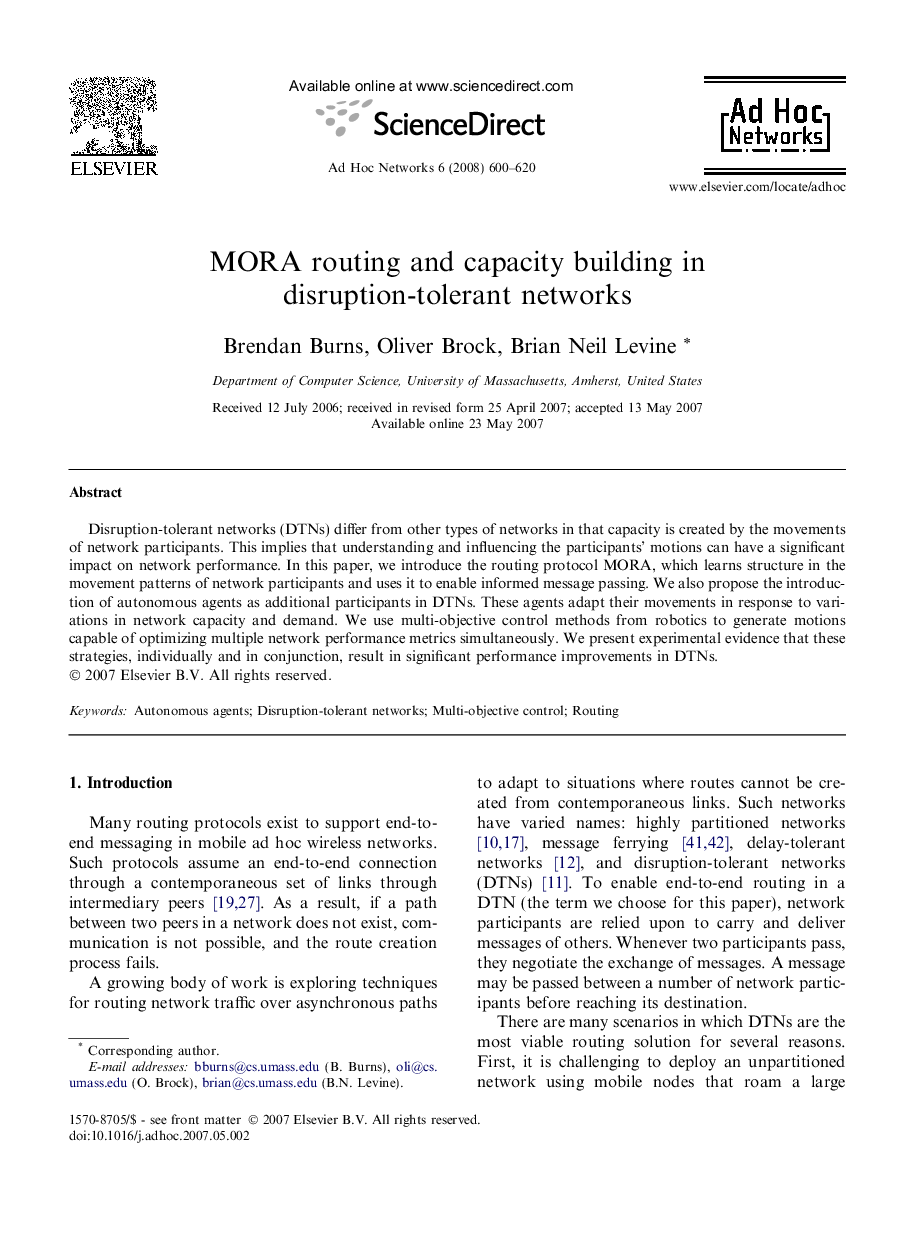| Article ID | Journal | Published Year | Pages | File Type |
|---|---|---|---|---|
| 444885 | Ad Hoc Networks | 2008 | 21 Pages |
Disruption-tolerant networks (DTNs) differ from other types of networks in that capacity is created by the movements of network participants. This implies that understanding and influencing the participants’ motions can have a significant impact on network performance. In this paper, we introduce the routing protocol MORA, which learns structure in the movement patterns of network participants and uses it to enable informed message passing. We also propose the introduction of autonomous agents as additional participants in DTNs. These agents adapt their movements in response to variations in network capacity and demand. We use multi-objective control methods from robotics to generate motions capable of optimizing multiple network performance metrics simultaneously. We present experimental evidence that these strategies, individually and in conjunction, result in significant performance improvements in DTNs.
